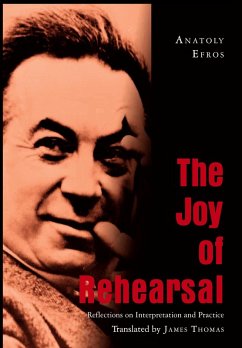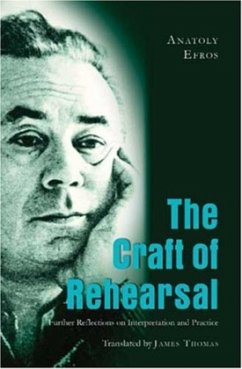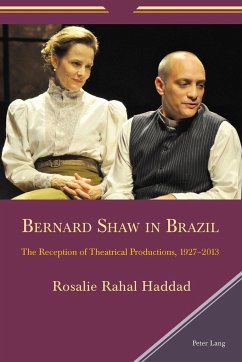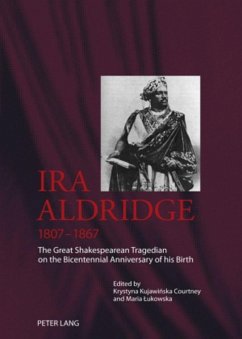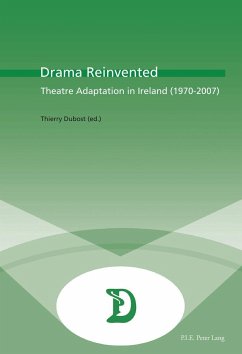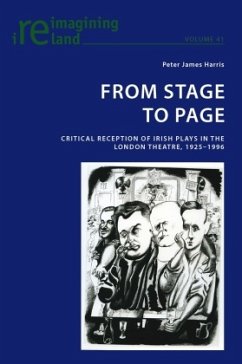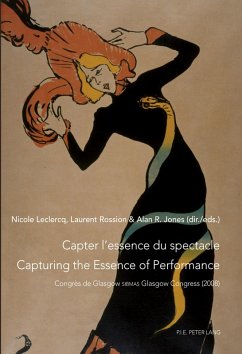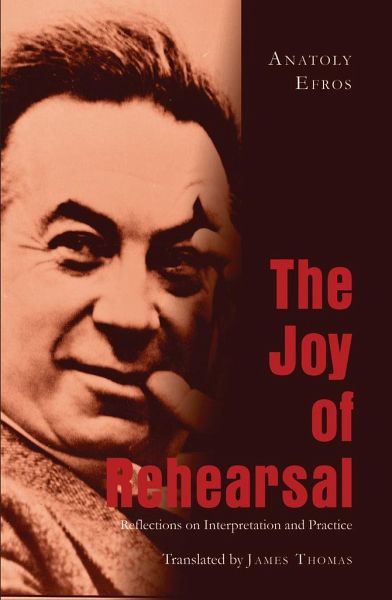
The Joy of Rehearsal
Reflections on Interpretation and Practice- Translated by James Thomas

PAYBACK Punkte
0 °P sammeln!
Anatoly Efros (1925-1987), one of the most admired and original directors of post-war Russia, directed at the Central Children's Theatre, Malaya Bronnaya Theatre, Lenkom Theatre, Moscow Art Theatre, and Taganka Theatre, and elsewhere including the Guthrie Theatre in Minneapolis and the Toen Theatre in Tokyo. He taught directing at the State Institute for Theatre Training and wrote several influential books. His productions received numerous awards for creative excellence. In The Joy of Rehearsal, his best-known work, Efros illuminates the dynamics of the director's creative work. He discusses ...
Anatoly Efros (1925-1987), one of the most admired and original directors of post-war Russia, directed at the Central Children's Theatre, Malaya Bronnaya Theatre, Lenkom Theatre, Moscow Art Theatre, and Taganka Theatre, and elsewhere including the Guthrie Theatre in Minneapolis and the Toen Theatre in Tokyo. He taught directing at the State Institute for Theatre Training and wrote several influential books. His productions received numerous awards for creative excellence.
In The Joy of Rehearsal, his best-known work, Efros illuminates the dynamics of the director's creative work. He discusses the process of considering future plays, rehearsing them, and evaluating the results. Devoted to the principles of Konstantin Stanislavsky and Michael Chekhov, and inspired by the ideas of Bertolt Brecht, Efros also considers the practice of rehearsals and other features central to professional creative work. His productions of Shakespeare, Moliere, Chekhov and other classics were major events for those who looked to the theatre for social significance as well as aesthetic experience. Theatre students and professionals will benefit from the insights gained as Efros writes about his unique vision for the modern theatre.
In The Joy of Rehearsal, his best-known work, Efros illuminates the dynamics of the director's creative work. He discusses the process of considering future plays, rehearsing them, and evaluating the results. Devoted to the principles of Konstantin Stanislavsky and Michael Chekhov, and inspired by the ideas of Bertolt Brecht, Efros also considers the practice of rehearsals and other features central to professional creative work. His productions of Shakespeare, Moliere, Chekhov and other classics were major events for those who looked to the theatre for social significance as well as aesthetic experience. Theatre students and professionals will benefit from the insights gained as Efros writes about his unique vision for the modern theatre.



